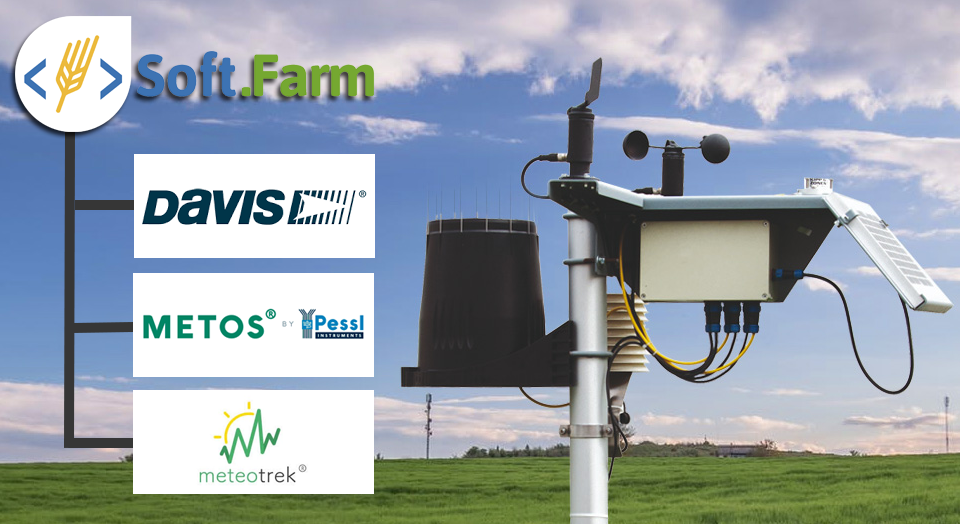Weather conditions must be taken into account and not allowed to affect the harvest
12.11 2020

Agriculture is one of the main consumers of meteorological information and is highly dependent on weather conditions. Any farmer knows how much soil and air humidity, the amount of precipitation, light, heat have a strong impact on productivity, and how necessary a comprehensive analysis of causal relationships and principles describing the influence of the state of the atmosphere, plants and soil on various aspects of agricultural production.
The weather has the greatest impact on yields, so modern farmers are trying to adapt their economic activities to all seasonal changes. They use innovative technologies such as GPS-monitoring of equipment, online control of completed work, satellite images that determine the NDVI index, agroscouting, data from weather stations, which, if used correctly, make it possible to preserve and increase the future harvest.
With the help of specialized software products that can work in conjunction with weather stations, it is possible to keep statistics and record the main climatic indicators, which, with further analysis, will make it possible to avoid unwanted losses at all stages of development. Such a «weather diary» will have the greatest reliability, since the nearest public meteorological station can be located tens of kilometers from the farm fields and give data that does not correspond to the real weather conditions on the cultivated land. However, its maintenance requires constant monitoring and labor costs. With a remote location of a public meteorological station for forecasting the weather and accurately recording the current indicators, it is advisable to install its own intelligent systems for monitoring weather conditions at the agricultural enterprise.
The primary function of such a station is the accumulation of historical weather data that will display real meteorological conditions in the fields of the farm. It collects information about the temperature and relative humidity of not only air, but also soil, wind speed and direction, atmospheric pressure, total evaporation, leaf moisture, precipitation, solar radiation, ultraviolet radiation and many other indicators, the presence of which depends on the configuration of meteorological stations. All information collected over a certain period is analyzed, summarized and graphically displayed by a data logger.
The key feature of a weather station is forecasting, and it's not just about forecasting the weather. It can be used in daily work, for example, to see if the conditions for spraying are favorable, whether the weather is suitable for sowing, whether watering is needed, etc. Based on the calculation of the sum of active temperatures, it is possible to assess the suitability of a region for growing certain plants, analyze development stages crops, their maturation and the effect of heat exposure on them. By collecting information together, a variety of sensors provide an understanding of the climatic situation, which makes it possible to make predictions on the quantity and quality of the crop or the intended use of land.
When choosing a weather station, you need to know its functionality and what they can be used for. They are actively used in all areas of activity, so it is recommended to choose models that are designed specifically for agriculture. In this case, all data is stored on the server and can be obtained in the form of tables and reports anywhere in the world.
Soft.Farm web service combines information from weather stations of different manufacturers in one interface. For a long time, we have integrated into the system the services of such reliable providers as MeteoTrek and Metos, which use modern hardware and software. Now the list of our partners has been supplemented by Davis, whose weather stations are suitable for both professional and domestic use. Their technical capabilities allow you to analyze the necessary information and effectively use it to increase the yield of farms, and, accordingly, increase their profitability.
Weather stations are a decision-making tool. They make it possible to qualitatively plan the conduct of field work, which directly depends on weather conditions, as well as to accumulate a database, forming the «history» of each field. It should be noted that they work most effectively in tandem with a responsible agronomist, who will respond in time to software warnings and be sure to take into account the meteorological parameters that affect the activities of the entire agricultural enterprise.
Back to news list